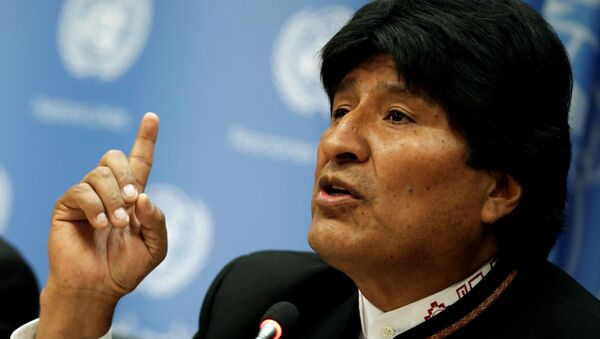Sputnik: How much access does Bolivia currently have to Chile’s coastline and Is Bolivia likely to be granted its own corridor to Chile’s following Morales plea in the Hague?
Francisco Carballo: This is an important issue in Latin American politics at the moment, as Bolivia has preferential access to Chile’s northern ports, something that is even protected by international law. They have access to these areas but not additional ports in the south of the country, but really the issue is not really about access to the ports, but an issue about sovereignty, about revising the history of the borders between Chile and Bolivia.
I think Bolivia has little chance of getting something from Chile, as Antofagasta, one of the cities at the heart of the dispute, is one of the richest areas in Chile, and represents around 30% of the country’s total exports; there are also most of the country’s most important copper mines in the area.
Furthermore, Chile is investing a great deal in the infrastructure of the region. On the other hand; I think that something that is very interesting about Morale’s visit to The Hague is that he’s highlighting an important problem in international relations, essentially about the colonisation and decolonisation of the world.
What I mean by this, is that the borders we have in the world are based on violence and wars, so the plea by Bolivia is symbolically important and therefore it is unlikely that they will be given anything by the world court, as this would open a sort of Pandora’s box for territorial claims in other countries.
Sputnik: Has Evo Morales been a successful president for Bolivia overall?
Francisco Carballo: The figure of Evo represents a turning point in Bolivian history. He is the first indigenous president in a region that has been governed by white elites for some time, so in that sense the figure of Evo is extremely important.
In terms of public administration, I think the country is better now than it was before Morales, it has grown economically and now there is a very prosperous indigenous middle class.
Morales does have some negative aspects however, he has all the traits of Latin American caudillos, he is very much about himself, authoritarian, patriarchal, and something that is disappointing about Morales is that he was elected on a platform of decolonisation, but this has been more in gestures than in substance.
Politically speaking for the left and the indigenous, he could be considered disappointing.
The views expressed in this article are solely those of the speaker and do not necessarily reflect the official position of Sputnik.

